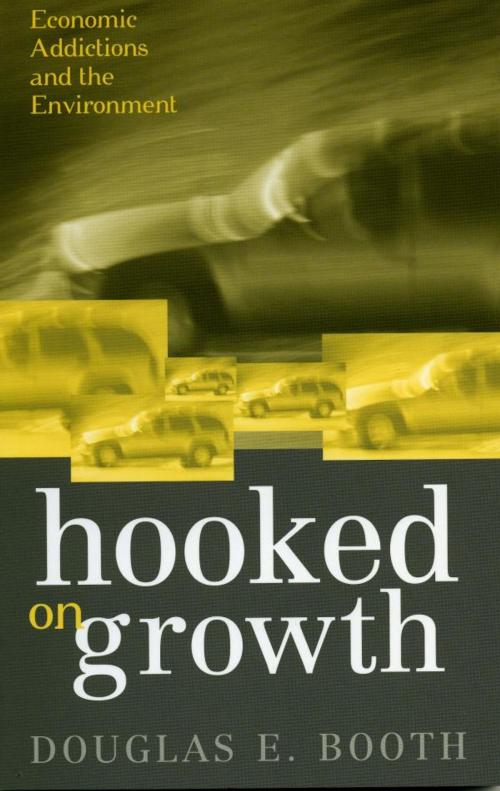| Author: | Douglas E. Booth | ISBN: | 9781461637431 |
| Publisher: | Rowman & Littlefield Publishers | Publication: | May 3, 2004 |
| Imprint: | Rowman & Littlefield Publishers | Language: | English |
| Author: | Douglas E. Booth |
| ISBN: | 9781461637431 |
| Publisher: | Rowman & Littlefield Publishers |
| Publication: | May 3, 2004 |
| Imprint: | Rowman & Littlefield Publishers |
| Language: | English |
Challenging conventional wisdom on the virtues of a consumer economy, this provocative book explores the nexus between growth and environment sustainability. The miracle of the modern affluent economy is an ever-swelling cornucopia of consumer goods, leading to expanding consumption as the essential underpinning of economic growth in more and more parts of the globe. Douglas Booth contends that expansion in this form amounts to an addiction. Are we as a society hooked on economic growth of a kind that carries with it significant threats to the natural environment? A critical dilemma for the modern economy is that growth is required to prevent the pain of unemployment. As growth continues, the environment declines, but if growth slows, unemployment rises. We seem trapped in a spiraling predicament like that of the addict.
This accessible work explores whether getting "unhooked" from growth to meet the needs of the environment is possible. Giving the environment priority over growth may seem to some like a radical idea, yet the author argues that it can be accomplished using marketable emissions allowances, transferable development rights, and other tools popular with conventional economists. It can also be achieved by creating more interesting and environmentally friendly urban landscapes less beholden to the automobile. The key problem a less growth-oriented society will face is ensuring that everyone who wants employment can find it. This will require something that many people wish for anyway, a shorter workweek. More leisure, a higher-quality environment, and more attractive cities and towns are the potential rewards of a less consumption-oriented society.
Yet powerful economic interests that benefit from a high-growth economy are arrayed against changes in the status quo. Under what circumstances can the power of special interests be overcome in the name of environmental conservation? This is the author's critical final question as he offers a clear path to a sustainable economic and environmental
Challenging conventional wisdom on the virtues of a consumer economy, this provocative book explores the nexus between growth and environment sustainability. The miracle of the modern affluent economy is an ever-swelling cornucopia of consumer goods, leading to expanding consumption as the essential underpinning of economic growth in more and more parts of the globe. Douglas Booth contends that expansion in this form amounts to an addiction. Are we as a society hooked on economic growth of a kind that carries with it significant threats to the natural environment? A critical dilemma for the modern economy is that growth is required to prevent the pain of unemployment. As growth continues, the environment declines, but if growth slows, unemployment rises. We seem trapped in a spiraling predicament like that of the addict.
This accessible work explores whether getting "unhooked" from growth to meet the needs of the environment is possible. Giving the environment priority over growth may seem to some like a radical idea, yet the author argues that it can be accomplished using marketable emissions allowances, transferable development rights, and other tools popular with conventional economists. It can also be achieved by creating more interesting and environmentally friendly urban landscapes less beholden to the automobile. The key problem a less growth-oriented society will face is ensuring that everyone who wants employment can find it. This will require something that many people wish for anyway, a shorter workweek. More leisure, a higher-quality environment, and more attractive cities and towns are the potential rewards of a less consumption-oriented society.
Yet powerful economic interests that benefit from a high-growth economy are arrayed against changes in the status quo. Under what circumstances can the power of special interests be overcome in the name of environmental conservation? This is the author's critical final question as he offers a clear path to a sustainable economic and environmental















